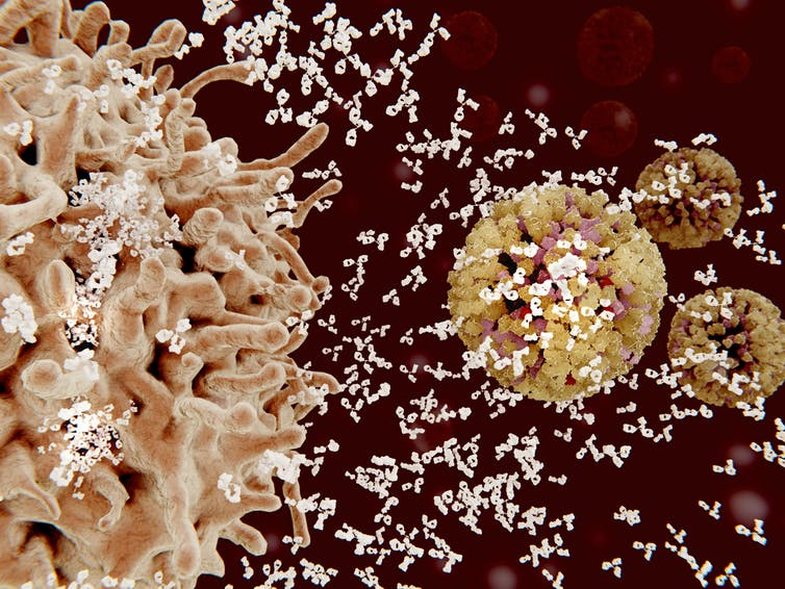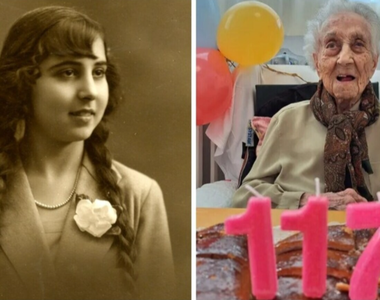
The goal of Covid-19 vaccines that are spreading around the world is to stimulate our immune system to create a protective response against coronavirus, particularly by generating antibodies. These antibodies then circulate in our blood until they are needed in the future, attacking and removing the coronavirus quickly from our bodies if we become infected.
The speed with which the scientific and medical communities have developed and tested these new vaccines has been tremendous. However, this short term leaves us with some extraordinary questions.
The key among them is how long the protection we receive from vaccination, or from infection with the virus itself, will last.
How the immune system "remembers"
Our body’s extraordinary ability to remember past encounters with infectious microorganisms and to maintain strong defenses against them is due to the phenomenon of immunological memory. This memory lies in the white blood cells known as lymphocytes, of which there are two main types: T cells and B cells.
When the body faces a new challenge - whether infection or vaccine - specific T cells and B cells are recruited to deal with it. The "memory" versions of these specific cells are kept on standby in case the same issue is encountered again in the future.
It is these B cells that are responsible for the release of antibodies into the blood. When an infection or vaccination occurs, some of them will metamorphose into factories that specialize in producing antibodies, known as plasma cells.
Antibodies are proteins, and like any other protein will naturally break down and be removed from the body within a few months in the longest case. Our body’s ability to maintain antibody levels after infection or vaccination is the result of two mechanisms. In the early stages, if memory B cells detect any persistent infection or vaccine, some will continue to grow into new plasma cells that produce antibodies.
Pasi infeksioni ose vaksina është “hequr” plotësisht, qelizat B të kujtesës nuk plotësojnë më popullatën e qelizave plazmatike, e cila bie. Sidoqoftë, disa mund të vazhdojnë si qeliza plazmatike me jetë të gjatë (LLPC), të cilat mund të jetojnë për shumë vite në palcën tonë të kockave, duke prodhuar vazhdimisht dhe duke lëshuar sasi të mëdha të antitrupave. LLPC nuk krijohen gjithmonë pas një infeksioni, por nëse janë, antitrupat kundër një infeksioni specifik mund të gjenden në gjak për një kohë të gjatë pasi të jetë pastruar infeksioni.
Edhe nëse LLPC-të nuk krijohen, kjo s’do të thotë që dikush nuk mund të gjenerojë më shumë antitrupa kundër një kërcënimi, nëse haset përsëri me një të tillë në të ardhmen.
Lloji i vaksinës ndikon gjithashtu në qëndrueshmëri
Ka shumë arsye pse vaksinimi ose infeksioni jo gjithmonë ofrojnë mbrojtje që zgjat shumë. Disa nga këto janë për shkak të ndryshimeve individuale në përgjigjen tonë ndaj një vaksine të caktuar. Sidoqoftë, vetë tiparet e vaksinave përcaktojnë natyrën e përgjigjes së antitrupave gjithashtu.
Disa njerëz mund të mos prodhojnë përgjigje të mira për vaksinat e gjalla për shkak të imunitetit para-ekzistues ndaj vetë vaksinës, pasi kanë pasur tashmë një infeksion natyror. Sidoqoftë, ata që reagojnë mirë kanë tendencë t'i mbajnë përgjigjet e tyre për më gjatë. Kjo është pjesërisht për shkak të qëndrueshmërisë së vaksinës së gjallë në trup, e cila inkurajon rimbushjen afatshkurtër të qelizave plazmatike.
Ne kemi parë tashmë që shkalla me të cilën antitrupat shkatërrohen pas Covid-19 mnd të ndryshojnë, për shembull midis burrave dhe grave.
Many of the new Covid vaccines are based on methods and technologies that have proven successful, but how well they activate those "memory" B cells and LLPCs, giving longer-term immunity, remains to be seen.
Source: The Conversation, PLOS Biology





